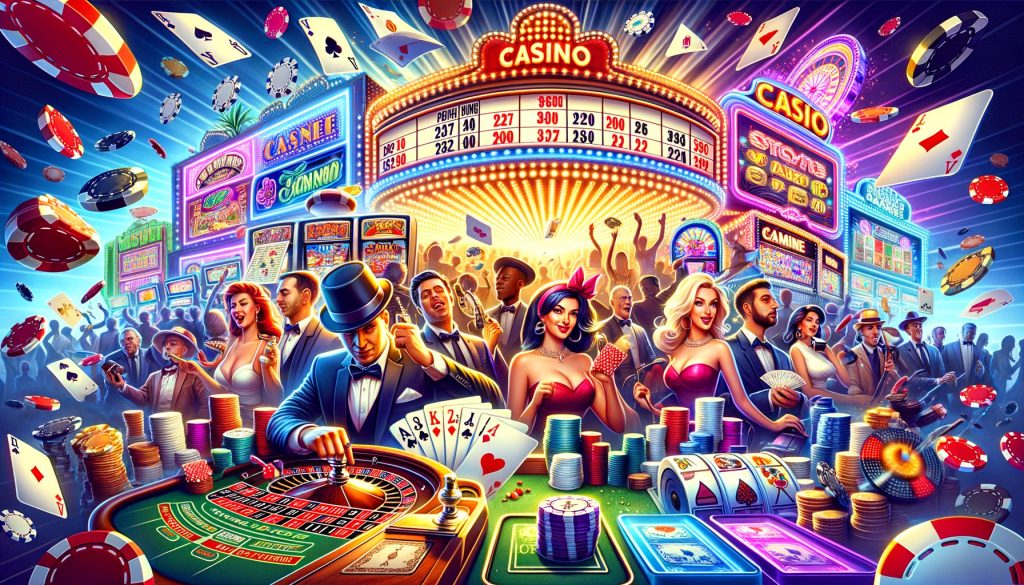Every action in the world of gambling leaves a digital trace, but not every one is safe. Verification in a casino turns chaotic system entry into an orderly process, where the right to play is confirmed not by a nickname, but by identity. Data verification is not an obstacle, but a filter that separates an honest platform from a questionable one.
Entry point: why verification is needed in a casino
Without a personal verification procedure, no licensed operator grants full access to services for the player. Online casinos regulate activities in accordance with legal requirements. The procedure establishes legally significant relationships between the user and the platform where financial transactions take place.

Such verification protects both sides: it prevents fraud, excludes minors, and simplifies fund refunds in disputed situations. The compliance department verifies data—documentarily and from sources—before activating large deposits, bonuses, or withdrawal of winnings.
How casino verification works
 Identity verification is a mandatory step that grants access to all financial functions of the platform. The procedure is carried out according to a standard scheme and is adapted to the jurisdiction’s requirements and the operator’s license.
Identity verification is a mandatory step that grants access to all financial functions of the platform. The procedure is carried out according to a standard scheme and is adapted to the jurisdiction’s requirements and the operator’s license.
The procedure consists of several steps:
- Document collection—passport, ID card, or driver’s license.
- Address confirmation—utility bill, bank statement, or lease agreement.
- Payment source verification—wallet or bank card screenshots.
- Age verification—excluding minors based on the date of birth.
- Data matching—automated and manual audit.
Most platforms automate the steps through KYC services, but the operator reserves the right to request re-identification. Processing time ranges from 24 hours to 5 days.
Regulation and License
Every casino with an international license is obliged to adhere to KYC and AML (Anti-Money Laundering) principles. A license issued by the Malta Gaming Authority, UKGC, Curacao, or the Kahnawake Commission requires identifying each user.
This procedure is part of the standard regulation: without it, the platform cannot be used to its full potential. Neglecting verifications is considered a violation of licensing conditions.
Verification and Security: Risk Mitigation
Gambling activities provoke an increase in fraud. Masking programs, fake cards, fake accounts are common risks for platforms.
Identity verification limits:
- multiple registrations (multi-accounting);
- money laundering through deposits;
- theft of others’ financial data;
- interference with randomizing results.
For example, in 2022, the British regulatory service recorded 4000 fraud cases, in 89% of which proper account verification was not conducted.
Personal Data and Protection
Services process documents in encrypted SSL channels and store them in closed server sections with two-factor authentication. The level of personal data protection complies with GDPR requirements.
Verification in a casino eliminates leakage risks by minimizing manual operations. Only certified security department specialists have access to sensitive information.
Trust, Honesty, Reputation: Digital Industry Currency
Data verification is not a formality but a foundation on which trust is built. The platform’s reputation depends on the transparency of processes and players’ confidence in the fairness of algorithms.
A player who successfully completes the identification process confirms serious intentions. The operator, in turn, activates a protection system that prevents technical failures, account freezes, and arbitrary blocks.
Financial Operations and Payment Systems
Verification in a casino is mandatory before withdrawing funds. Absence of confirmed data blocks access to cashout. Payment systems (Skrill, Neteller, Visa, Mastercard, Piastrix, crypto wallets) require correspondence between the sender and the account owner’s name.
According to Paysafe statistics, up to 62% of frozen transactions are due to the lack of identity verification procedures. The platform cannot initiate fund withdrawals without matching identification data with the wallet or card owner’s data.
Age and Responsibility
Casino verification detects attempts to register individuals under 18 years old. Age restrictions depend on the jurisdiction: in most countries, it’s 18+, while in some regions, it’s 21+.
Facial and document recognition systems (e.g., Jumio, IDnow) instantly identify minors. When violations are detected, the operator blocks the account without returning the winnings.
Support Services and Verification Assistance
Technical support guides through each step. Chat or email support operators explain how to pass verification in a casino and avoid rejections.
The instructions include document format, image quality requirements, upload and waiting times. Support services operate 24/7 on most international platforms.
Why Player Benefits from Verification in a Casino
Despite appearing bureaucratic, the procedure is a way to gain access to extended functionality and expedite interaction with the platform. It removes limits on deposits, activates access to VIP programs, and avoids additional checks for significant winnings.
A player who completes verification uses the platform without restrictions. In case of a disputed situation, a verified account is legally protected.
For example, if a payout is canceled due to suspicion of multi-accounting, a player who has not undergone identity verification loses the ability to challenge the decision. On the other hand, a verified participant can appeal to the regulator and receive official review.
Verification and Deposit: Instant Game Access
For minimal deposits in some gaming establishments, personal identification is not required immediately. However, at the second or third deposit stage, the system initiates the procedure.
Licensed platforms regulate this through limits: for example, up to 200 EUR, identification is not mandatory, but after that, verification is required. This requirement is set by the regulator and is non-negotiable.
A player who wishes to participate in tournaments, activate bonuses, or make multiple deposits verifies the account in advance and avoids account blocks.
How to Pass Casino Verification Without Errors
One of the key steps is submitting documents correctly. Verification cannot be completed with blurry photos, hidden corners of documents, or mismatched data.
The system rejects documents with:

- missing corners or fields;
- unreadable names;
- blurred owner photo;
- outdated issue date.
The ideal scenario is a high-quality, color scan of the document without shadows, glares, or overexposed areas.
Conclusion
 Verification in a casino has long evolved from optional actions to a standard practice of legal operators. Identity confirmation protects both sides and builds trust between the service and the user. Verification is not a formality but a filter that only allows those who are truly ready to play within the law, honesty, and transparent rules.
Verification in a casino has long evolved from optional actions to a standard practice of legal operators. Identity confirmation protects both sides and builds trust between the service and the user. Verification is not a formality but a filter that only allows those who are truly ready to play within the law, honesty, and transparent rules.
 en
en  de
de  ar
ar  es
es  hi
hi  fr
fr  nl
nl  ru
ru  it
it  pt
pt  el
el 









